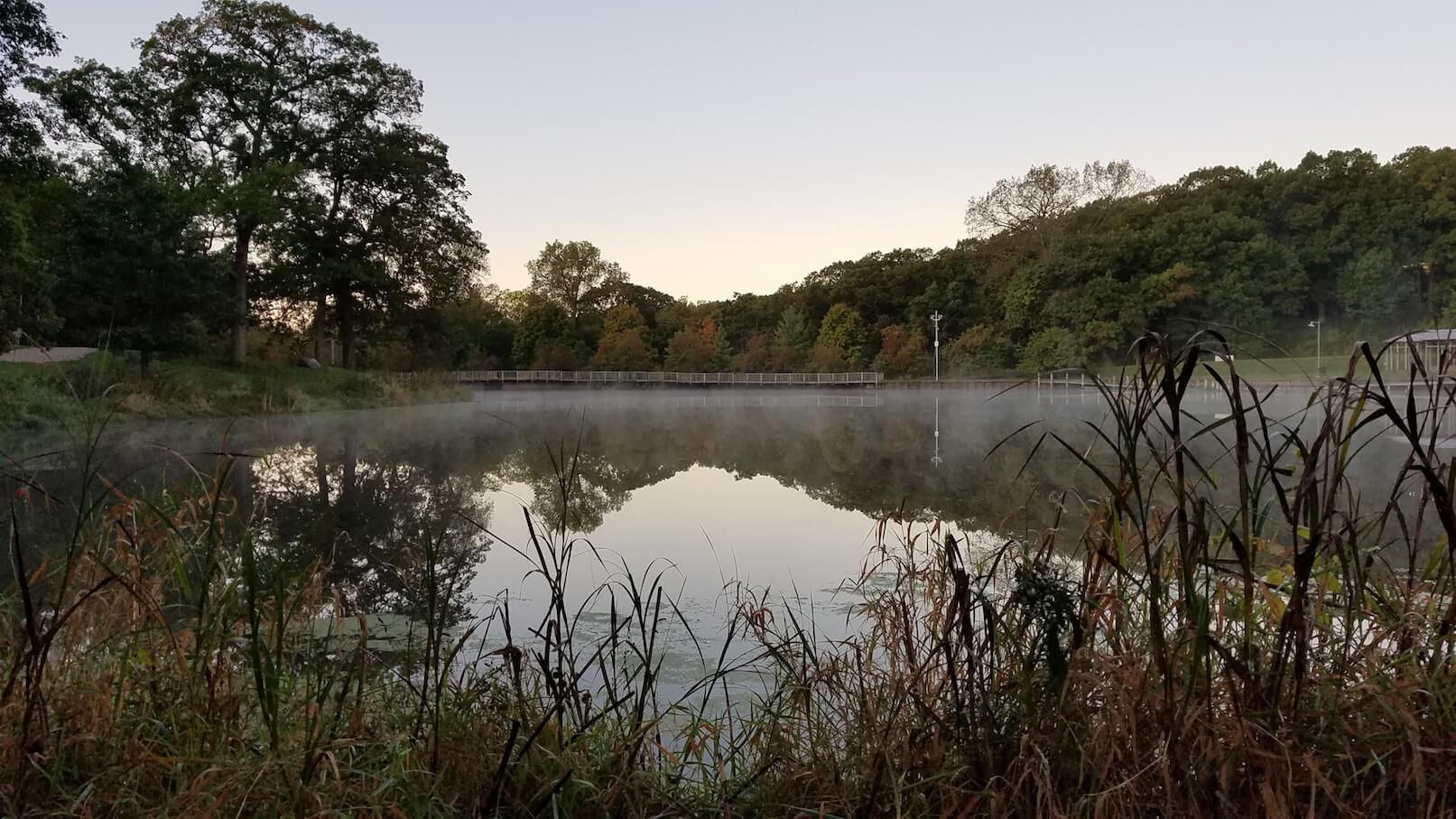
Photo by Julie Fleming
Jeremy Jackson was part of the Vietnam War youth on picket lines during the nation’s civil rights movement in 1969. On Wednesday, the now 76-year-old professor at Scripps Institution of Oceanography in La Jolla, California, urged Iowans to follow his lead and get involved in today’s version of the civil rights movement: the fight for climate change.
He made his case during a lecture at Iowa State University with fourth-generation Clarinda, Iowa farmer Seth Watkins.
“Where is the equivalent movement for the environment? Because farming, agriculture and food systems is a huge part of the environment, and I guess what I would hope is that some of you would view it as exciting and interesting to get involved in that aspect of the food system,” Jackson said.
Meant to discuss the effects of Iowa’s agriculture beyond the state border, the lecture stressed the harm that Iowan farms put on the nation’s water supply through the use of harsh chemicals for crops and livestock runoff.
[inline-ad id=”0″]
Jackson was initially driven to visit Iowa to see how farming practices in the state contaminate the nation’s water supply — specifically, what was creating toxicity in the Gulf of Mexico.
“I first came here because I was interested in the dead zone in the Gulf of Mexico, and I knew it was driven by agriculture in the corn belt,” Jackson said. “How do Iowa farmers sleep at night knowing they are endangering the health of their neighbors and their families?”
Watkins, an Iowa farmer, shared that when his son was born with special needs, and after his daughter also had a complicated birth, a surgical team went through his family’s records and asked where they got their water from.
“Now, I can’t prove that the products I use in agriculture caused this,” Watkins said. “But I can’t prove they didn’t.”
[inline-ad id=”2″]
The lecture then focused on the current landscape of sustainable agriculture in the state. Both speakers applauded the research Iowa State students were doing with climate change mitigation in agriculture but expressed frustration over the state’s lack of widespread use of their findings.
“The taxpayers pay money to analyze the potential to farm in ways that would minimize these risks, but as far as I can tell, they haven’t been implemented,” Jackson said. “Just driving here, I don’t see a lot of evidence that voluntary nutrient is working, because there are all sorts of uncovered fields, no margins along the fields or anything, so I think you have a long way to go with that.”
Kathleen Delate, an organic researcher from the Leopold Center, the recently state-defunded sustainable agriculture program at ISU, spoke up and said that while the center is still open, a lot of their work cannot be promoted because of financial restraints.
[inline-ad id=”1″]
“We have, still in existence, the bare bones of the Leopold Center for sustainable agriculture. Probably every one of the faculty in this room has received funding to do outstanding work in the field of sustainable agriculture.” Delate said. “Where is it now? It’s sitting there with 1.5 people in the office and no grants are given out. Why is that? Because of what happened in the Statehouse.”
Mark Rasmussen, the director of the Leopold Center said he did a lot of “forensic politics” after the center’s defunding.
“It was very clear that some components of agribusiness have pushed this heavily simply because the center was advocating for incentives for low input, less cost ways of doing things. And this they saw as a perennial threat to their bottom line,” he said.
“They fight like hell to maintain the status quo. And that really describes the politics of Iowa in many ways. Is hanging desperately to the status quo.”
The lectures said the only way to make progress in the state is to push for political leaders who will advocate for proven environmental advancements.
“I’m quite serious about what I was saying about students and young people. Take your state back,” Jackson said. “Vote. There’s a way to deal with it, it’s called the first Tuesday in November.”
Watkins agreed that pushing agricultural climate mitigation in politics will help the state achieve environmental success.
“We’ve got incredible soil, we’ve got these bright people in our state, this really is a great place, but we’re not utilizing our resources properly. And we have to have the political will to achieve that,” Watkins said.
by Isabella Murray
Posted 10/31/19

Iowa Republicans make outlawing gay marriage key 2024 campaign priority
Iowa Republicans have made outlawing gay marriage a key goal in their 2024 party platform. During the Iowa GOP’s 2024 state convention on Saturday,...

Department of Justice says Iowa immigration law violates US Constitution
If Iowa doesn’t suspend the enforcement of its new immigration law by May 7, the state could face a federal lawsuit, according to the Des Moines...

Rushing: Iowa State president said the quiet part out loud
I want to thank Iowa State University President Wendy Wintersteen for doing us all a favor by finally saying the quiet part out loud: all the...

Iowa sets aside almost $180 million for year two of voucher program
Iowa has committed nearly $180 million in taxpayer funds to support private school tuition in the 2024-25 school year, which is almost $50 million...

Kalbach: Immediate action needed on corporate ag pollution
Iowa agriculture has undergone substantial changes over the past 40 years. We see it all around us. Rather than crops and livestock being raised on...

VIDEO: Jochum calls Gov. Reynolds’ summer meal program a ‘hunger game’
Iowa Gov. Reynolds announced a competitive $900,000 grant program to feed Iowa children over the summer, months after she declined $29 million in...




